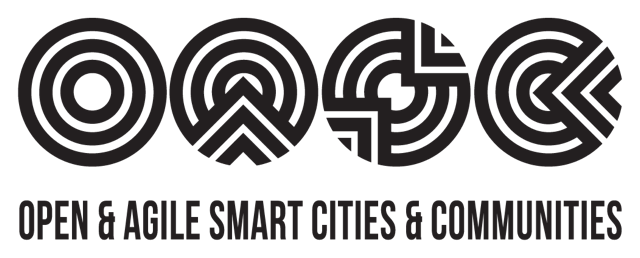The Open & Agile Smart Cities network (OASC) is one of the partners of a new € 30 million initiative launched by the European Commission. The goal of the “Rural Smart Communities” initiative is to develop rural digital service platforms and stimulate the economic growth and uptake of digital and data-driven services in Europe’s regional areas.
At the core of this EU-funded initiative are two large-scale pilot projects: “AURORAL – Architecture for unified regional and open digital ecosystems for smart communities and wider rural areas large-scale application” and “dRural – The service marketplace for European rural areas.
OASC is one of the technical partners of the dRural project, a €15 Million large-scale pilot, which was officially launched on 1 January 2021. dRural aims to work closely with rural communities and citizens to develop a platform-based solution – integrating data and applying advanced technologies such as Artificial Intelligence. The project will address the current challenges of the four demonstrator regions in Croatia (Dubrovnik), Netherlands (Gelderland Midden), Sweden (Region Jämtland Harjedalen) and Spain (Extremadura). More pilot regions – selected by an open call, will apply and test the innovative solutions of the d-RURAL project.
The role of OASC will be to apply the principles of Minimal Interoperability Mechanisms (MIMs) to the platform development of the project.
Davor Meersman, CEO of OASC, said:
“OASC will contribute to d-Rural with the latest knowledge from our network to support the digital transformation of rural communities. Cities are only as strong as the regions surrounding them. Therefore it will be critical to ensure data and solutions interoperability between cities and regions. The OASC Minimal Interoperability Mechanisms are the technical foundation for such an ecosystem.”
OASC builds on extensive experience in working with frontrunner cities in Europe and beyond, as well as the results of the SynchroniCity Large-Scale Pilot, to support the agile development of the dRural solution based on open and minimal common standards.
The Minimal Interoperability Mechanisms are the technical foundation for the European living-in.eu initiative. Meanwhile, OASC MIMs are adopted and integrated on a global level. Notably, the UN’s United 4 Smart Sustainable Cities (U4SSC) initiative, where OASC is working to deliver an international reference for procurement of urban platforms, and the World Economic Forum’s G20 Global Smart Cities Alliance, where OASC provides a technical basis for interoperability of data and services.
The minimal and open approach to digital platforms for cities and communities is also being adopted on national and regional levels, for example, in Flanders (Belgium), the Netherlands, Japan, and Denmark.
Meet the Smart Rural Communities at CITYxCITY Festival
Join the Rural Smart Communities session on 13 January 2021, 16-17 CET, to learn more about this EU initiative and the large-scale projects AURORAL and dRural.
The session will point to the importance of rural communities taking the initiative to boost rural services such as social care, education, energy, and mobility and open the floor to present, debate and discuss the expected impact of two new projects: AURORAL and dRural.

